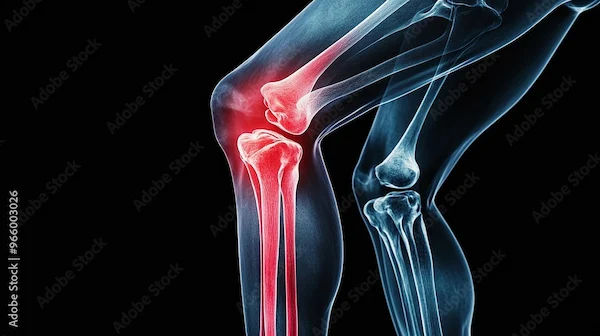Cataract Surgery Overview and Recovery Details
Get a detailed overview of cataract surgery, including the procedure, what to expect before and after surgery, and important recovery tips to ensure a smooth healing process and improved vision.


Introduction
Cataracts are a common eye condition, especially as we age. If you or a loved one has been diagnosed with cataracts, you might be wondering about the treatment options. The good news is that cataract surgery is a safe and effective procedure that can restore clear vision. In this article, we’ll explain what cataract surgery involves, what to expect during recovery, and how to take care of your eyes afterwards.
What Is a Cataract?
A cataract is a clouding of the eye’s natural lens, which lies behind the iris and pupil. This cloudiness can make vision blurry, dim, or even cause glare in bright light. Cataracts develop slowly over time and are most commonly due to ageing, but they can also result from eye injuries, diabetes, or prolonged exposure to sunlight.
When Is Cataract Surgery Needed?
Not all cataracts require immediate surgery. In the early stages, stronger glasses or better lighting may help. However, if cataracts start interfering with daily activities like reading, driving, or recognising faces, your doctor may recommend surgery.
What Happens During Cataract Surgery?
Cataract surgery is a quick and painless outpatient procedure, usually completed in 15–30 minutes. Here’s what you can expect:
1. Preparation: Your eye will be numbed with anaesthetic drops, and you may be given a mild sedative to help you relax.
2. Removing the Cloudy Lens: The surgeon makes a tiny incision in the eye and uses ultrasound waves (phacoemulsification) to break up the cataract, which is then gently suctioned out.
3. Inserting the New Lens: An artificial intraocular lens (IOL) is placed in the same position as your natural lens. This lens is clear and will not develop cataracts in the future.
4. Closing the Incision: The small cut usually heals on its own without stitches.
Consult Top Specialists for Personalised Tips
Recovery After Cataract Surgery
Recovery is usually smooth, but it’s important to follow your doctor’s instructions carefully. Here’s what to expect:
First 24–48 Hours
Your vision may be blurry initially but should improve gradually.
You may experience mild discomfort, itching, or sensitivity to light.
Avoid rubbing your eye.
Use prescribed eye drops to prevent infection and reduce inflammation.
First Week
Avoid strenuous activities, bending over, or lifting heavy objects.
Wear an eye shield at night to protect your eye while sleeping.
Avoid swimming or exposing your eye to dust and dirt.
First Month
Most people notice significant vision improvement within a few days to weeks.
Attend follow-up visits to ensure proper healing.
Avoid eye makeup and dusty environments for at least two weeks.
Tips for a Smooth Recovery
Rest Your Eyes: Give your eyes time to heal by avoiding excessive screen time.
Use Sunglasses: Protect your eyes from bright sunlight.
Follow Medication Instructions: Use prescribed eye drops as directed.
Stay Hydrated & Eat Healthy: Foods rich in vitamins A, C, and E (like carrots, oranges, and leafy greens) support eye health.
When to Call Your Doctor?
While complications are rare, contact your doctor if you experience:
Severe pain
Sudden vision loss
Increased redness or swelling
Flashes of light or floating spots
Conclusion
Cataract surgery is a highly successful procedure that can dramatically improve your vision and quality of life. With proper care, most people recover quickly and enjoy clear sight again.
If you or someone you know is experiencing cataract symptoms, consider consulting an eye specialist. You can easily book an appointment through Apollo 24|7 for expert care and guidance.
Consult Top Ophthalmologists
Consult Top Specialists for Personalised Tips
Dr. Padmini S
Ophthalmologist
4 Years • MBBS,MS
Bengaluru
Apollo Medical Center, Marathahalli, Bengaluru

Dr. Atheeshwar Das
Ophthalmologist
15 Years • MBBS,DO,DNB(Gold Medal),FRCS(Glasgow),FICO(UK),
Chennai
Apollo Speciality Hospitals OMR, Chennai

Dr. Sujit Pahari
Ophthalmologist
22 Years • MBBS, DNB, DOMS Ophthalmologist/ Eye Surgeon. FIC (Ophthal).
Bilaspur
Apollo Hospitals Seepat Road, Bilaspur

Dr. Rajeev Gupta
Ophthalmologist
24 Years • MBBS, MS (Ophthalmology)
Ghaziabad
Om Eye & Gynae Centre, Ghaziabad
Dr. S Venkateswaran
Ophthalmologist
35 Years • MBBS, PGD (OPTHALMOLOGY)
Tiruvannamalai
Shiva Eye And General Hospital, Tiruvannamalai
Consult Top Ophthalmologists
Dr. Padmini S
Ophthalmologist
4 Years • MBBS,MS
Bengaluru
Apollo Medical Center, Marathahalli, Bengaluru

Dr. Atheeshwar Das
Ophthalmologist
15 Years • MBBS,DO,DNB(Gold Medal),FRCS(Glasgow),FICO(UK),
Chennai
Apollo Speciality Hospitals OMR, Chennai

Dr. Sujit Pahari
Ophthalmologist
22 Years • MBBS, DNB, DOMS Ophthalmologist/ Eye Surgeon. FIC (Ophthal).
Bilaspur
Apollo Hospitals Seepat Road, Bilaspur

Dr. Rajeev Gupta
Ophthalmologist
24 Years • MBBS, MS (Ophthalmology)
Ghaziabad
Om Eye & Gynae Centre, Ghaziabad
Dr. S Venkateswaran
Ophthalmologist
35 Years • MBBS, PGD (OPTHALMOLOGY)
Tiruvannamalai
Shiva Eye And General Hospital, Tiruvannamalai




